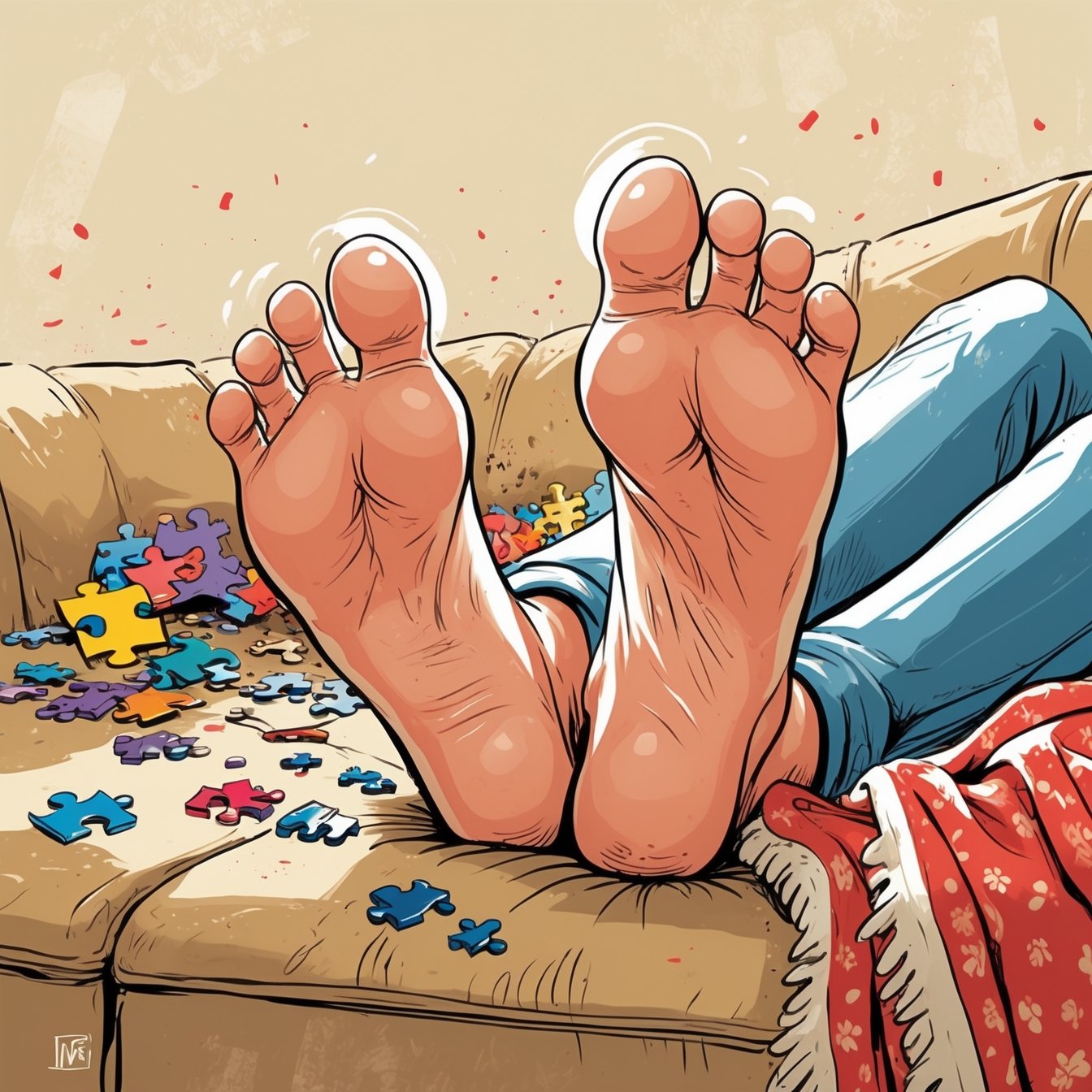The moment your mother demands you rub her feet for hours isn’t about feet. It’s about control.
I’ve seen this pattern thousands of times in different forms. A parent creates a ritual of service that crosses normal boundaries, then wraps it in guilt, obligation, and “family duty.” They’ve found the perfect leverage point—something uncomfortable enough that you wouldn’t choose to do it, intimate enough to create discomfort, and disguised as “care” so they can claim moral high ground when you resist.
The Hidden Power Dynamic
Let me be direct: No parent should force their child to spend hours massaging their feet multiple times weekly. That’s not normal caretaking—it’s a power play disguised as need.
I understand this intimately. My father had me rebuilding carburetors every weekend for years—not to teach me about engines, but to keep me under his thumb. “My house, my rules” was the mantra. Sound familiar?
What’s happening is your mother has created what I call an “Endless Debt Contract”—a factory-spec fact about these relationships is they’re structured so you can never fully repay what you “owe.” The goalposts constantly move. Two hours becomes four. “Good enough” never exists.
Breaking the Control Cycle
Here’s what nobody tells you about being a man: The strongest move isn’t pushing back harder—it’s refusing to play rigged games altogether.
Your mother has created what psychologists might call an “emotional frame” where her comfort is positioned as your responsibility. This frame traps you in a script where resistance equals betrayal. These invisible structures shape behavior without your awareness, making setting boundaries feel like an act of violence rather than self-respect.
Using the Straight-Shot Method of boundary setting:
- Name the pattern: “Mom, I notice this foot routine has become a multi-hour ritual where nothing I do is ever good enough.”
- State the reality: “I care about your health, but spending hours on your feet multiple times weekly isn’t reasonable or normal.”
- Offer a reasonable alternative: “I’m willing to help you find alternatives—maybe a professional foot care service or teaching you self-care techniques.”
- Hold position: When the guilt comes—and it will—don’t defend, explain or argue. Simply restate your position calmly.
For your brother still in the situation, this is mission-critical information. He needs to understand this isn’t about diabetes care—it’s about control. The endless hours and criticism afterward are the real point of the exercise.
The Larger Pattern
This isn’t just about feet. Field-tested truth: People who control others in one area rarely stop there. These emotional “bytes” containing obligation, guilt, and unworthiness have likely been programmed into other areas of your life.
I spent years trying to please my unpleasable father before realizing his approval was never the actual goal. The goal was keeping me in orbit around him, perpetually trying.
Your mother has created an environment where her physical needs trump your emotional needs for autonomy and respect. This reversal—where a parent’s comfort systematically overrides a child’s development—creates deep emotional scripts that can affect all your relationships.
Brotherhood wisdom: This isn’t about being a “good son” versus a “bad son.” It’s about recognizing when normal family care crosses into exploitation.
Your Challenge
Truth is, breaking free requires accepting that you can’t change her—you can only change your response. That’s not giving up; it’s tactical repositioning.
For those still trapped in these dynamics: Document the pattern. Record how many hours, how frequently, and the responses when you try to set limits. Having concrete evidence helps combat the gaslighting that inevitably follows boundary-setting.
Here’s your brotherhood challenge: This week, identify ONE area where you’re still operating under someone else’s emotional frame that diminishes you. Name it clearly. Then make ONE move toward reclaiming your autonomy in that space.
—Jas Mendola, knowing that a man’s greatest strength isn’t found in compliance, but in the courage to define his own boundaries

